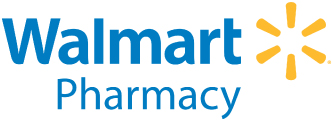HIV / AIDS Information
Human immunodeficiency virus (HIV) is a lentivirus (a member of the retrovirus family) that causes acquired immunodeficiency syndrome (AIDS), a condition in humans in which progressive failure of the immune system allows life-threatening opportunistic infections and cancers to thrive. Infection with HIV occurs by the transfer of blood, semen, vaginal fluid, pre-ejaculate, or breast milk. Within these bodily fluids, HIV is present as both free virus particles and virus within infected immune cells. The four major routes of transmission are unsafe sex, contaminated needles, breast milk, and transmission from an infected mother to her baby at birth (perinatal transmission). Screening of blood products for HIV has largely eliminated transmission through blood transfusions or infected blood products in the developed world.
HIV infection in humans is considered pandemic by the World Health Organization (WHO). Nevertheless, complacency about HIV may play a key role in HIV risk. From its discovery in 1981 to 2006, AIDS killed more than 25 million people. HIV infects about 0.6% of the world's population. In 2009, AIDS claimed an estimated 1.8 million lives, down from a global peak of 2.1 million in 2004. Approximately 260,000 children died of AIDS in 2009. A disproportionate number of AIDS deaths occur in Sub-Saharan Africa, retarding economic growth and exacerbating the burden of poverty. An estimated 22.5 million people (68% of the global total) live with HIV in sub-Saharan Africa, which is also home to 90% of the world's 16.6 million children orphaned by HIV. Treatment with antiretroviral drugs reduces both the mortality and the morbidity of HIV infection. Although antiretroviral medication is still not universally available, expansion of antiretroviral therapy programs since 2004 has helped to turn the tide of AIDS deaths and new infections in many parts of the world. Intensified awareness and preventive measures, as well as the natural course of the epidemic, have also played a role. Nevertheless, an estimated 2.6 million people were newly infected in 2009.
HIV infects vital cells in the human immune system such as helper T cells (specifically CD4+ T cells), macrophages, and dendritic cells. HIV infection leads to low levels of CD4+ T cells through three main mechanisms: First, direct viral killing of infected cells; second, increased rates of apoptosis in infected cells; and third, killing of infected CD4+ T cells by CD8 cytotoxic lymphocytes that recognize infected cells. When CD4+ T cell numbers decline below a critical level, cell-mediated immunity is lost, and the body becomes progressively more susceptible to opportunistic infections.
Most untreated people infected with HIV-1 eventually develop AIDS. These individuals mostly die from opportunistic infections or malignancies associated with the progressive failure of the immune system. HIV progresses to AIDS at a variable rate affected by viral, host, and environmental factors; most will progress to AIDS within 10 years of HIV infection: some will have progressed much sooner, and some will take much longer. Treatment with anti-retrovirals increases the life expectancy of people infected with HIV. Even after HIV has progressed to diagnosable AIDS, the average survival time with antiretroviral therapy was estimated to be more than 5 years as of 2005. Without antiretroviral therapy, someone who has AIDS typically dies within a year.
HIV / AIDS - Medication Information
Atripla
Atripla (efavirenz, emtricitabine, and tenofovir) is an antiviral medication that prevents human immunodeficiency virus (HIV) from reproducing in your body. Atripla treats HIV, which causes acquired immunodeficiency syndrome (AIDS). This medication is not a cure for HIV or AIDS.
Atripla is a fixed dose combination of 600 mg efavirenz, 300 mg tenofovir, and 200 mg emtricitabine. In adults, it is taken once daily on an empty stomach. Dosing at bedtime is recommended to improve tolerability of nervous system symptoms. Atripla is not recommended for patients under 18 years of age.
Truvada
Tenofovir/emtricitabine, trademark Truvada, is a fixed-dose combination of two antiretroviral drugs used for the treatment of HIV. It consists of 300 milligrams of tenofovir and 200 milligrams of emtricitabine. By combining the two agents into one tablet, it reduces the pill burden and increases compliance with antiretroviral therapy. The drug has also found some potential as a preventative measure if taken daily or weekly leading up to exposure, though human clinical trials are ongoing.
































